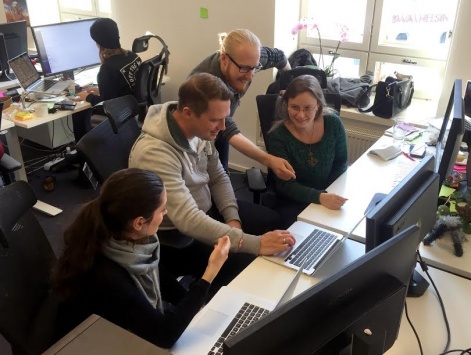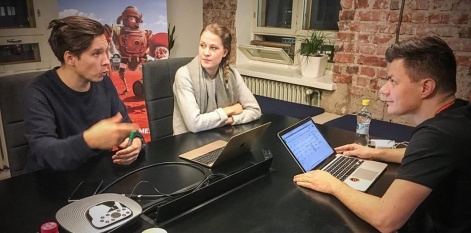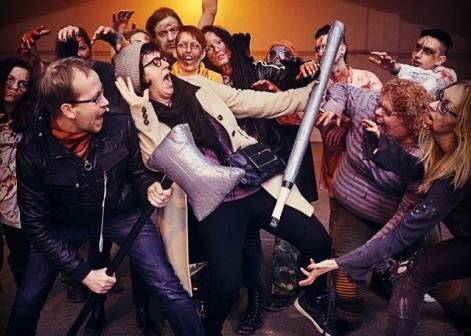In the world of free-to-play and games-as-a-service, customer support is more important than ever.
Different companies have their own approaches to this. Mana Cube has its 'Player Happiness Agents', for example, while platforms like Helpshift intend to simplify and optimise customer support activity for major developers.
Next Games, developer of The Walking Dead: No Man's Land, has taken a different approach.
The Finnish firm has been running a program internally that involves the whole company mucking in on player support, from the CEO to the Head of Design.
To find out how it's been going, PocketGamer.biz reached out to Next Games CMO Saara Bergström.
PocketGamer.biz: Why do you consider customer support to be so important?
Saara Bergström: You can't deliver a winning player experience if the whole company culture does not fully embrace a player-focused mindset. It’s just that simple.
From the very beginning we wanted to make sure being player-focused was a priority and deeply rooted in our company culture and values.
We wanted to make sure everyone understands who our players are, what they think and feel in a very concrete way.
We wanted to make sure being player-focused was a priority and deeply rooted in our culture.Saara Bergstrom
So we set up a “Player Support Bootcamp” where everyone in the company from our CEO, to game designers, coders, artists and marketers have a chance to experience interacting with the community firsthand.
When did you start running this program, and what was the inspiration?
We started planning this program even before our games were released, took a couple of people in from different teams to test it out, and started fully running the program last Spring.
The inspiration really came from within the company as we are looking at player experience in a holistic way and it’s everyone’s business here to deliver an extraordinary experience to our players.
It extends to everything we do, from game design decisions to talking with the players on our forums, social media or when they send us a ticket through our in-game help.
How exactly is the program structured? Are support duties on rotation for everyone at the company?
Our Player Support Bootcamp is divided into four sessions, each lasting at least three hours.
During the first session, our trainees get familiar with tools, ways of working, basics on how to look at things from a player's perspective, and what our aims are in supporting players.
During the first session you will also dive right into talking with players, beginning with easier cases.

During the next sessions, trainees can focus on specific interest areas depending what they work on such as technical issues, design questions and so forth.
Overall, the goal is that trainees will get a comprehensive idea of what the whole player experience is like when playing our games.
After rinsing and repeating, it’s time for graduation! And even a new round, since what you’ve learned should be refreshed every so often.
Anyone in the company can sign up and let the player support team know when they’re available.Saara Bergstrom
We have a sign-up list where anyone in the company can sign up to the program and let the player support team know when they’d be available.
This has also now become an important part of onboarding new employees, so talking to players is one of the first tasks for new people joining Next Games.
What have been the most significant things you've learned through this process?
First of all, we have been able to improve the communication and ways of working in between the development team and support a lot.
We’ve become much faster in technical issue resolution times, as both the developers and support understand the process.
We’ve also improved our internal tools a lot when the developers, who design tools to make it easy for the support team to help player, have used them in practice and spotted a lot of ways to improve them.
Generally, the whole company is now very much aligned on what are the priorities of fixing bugs or introducing new features, stemming from an understanding of what the players care most about and what is important for them.
In the industry more broadly, do you think player support is given enough consideration?
I don’t think it is regarded as a strategically important area in a lot of companies.
Many of the world’s leading organisations base their success on extraordinary service that is at the core of the company.
It's valued similarly to creating the product itself, and games companies have a lot to learn in that respect.

Many companies do say it is important but few take actual, concrete steps to bring it to the core of their business and operations.
Some of our Bootcamp trainees have said that they've been working in gaming for a long time, and this is the first time they've had a chance to get to know and support the players firsthand.
What do players get out of this contact with senior team members? Are they told who they are speaking to?
We decided not to reveal the true identities of the game developer staff or executives working in support.
At the end of the day, the service level needs to be always consistent and as a result you have a satisfied player, no matter who’s interacting with them.
How has talking to players more regularly changed the perspective of executives, game designers, etc.? Has it improved their work?
This is direct feedback from one of our User Experience Designers on The Walking Dead: No Man’s Land, who did the Bootcamp a couple of weeks back:
Some of our Bootcamp trainees said this is the first time they've had a chance to get to know and support the players firsthand.Saara Bergstrom
“Participating in the Player Support Bootcamp has been a true revelation to me as a developer. You are now eye-to-eye with the individuals that experience the product you have helped to create.
"You will naturally get a better idea of what people struggle with and can directly influence and better their experience by helping prioritise these issues in the ongoing development.
"The biggest takeaway for me has been the realisation that many, many people love and care about your game, but you have still a lot you can do better and improve upon. The players are eager to help you with that.
"In the end, you will be left a better developer.
"Even though it doesn’t guarantee that you are now creating perfect features and experiences, it sure helps during the design process because you have a better understanding of who you are designing the game for.”
What have been the challenges of maintaining the program, and has it been worth it?
We haven’t really had any challenges. People are signing up on a voluntary basis when they have the time to dedicate to this.
So even organising around this is quite easy, contrary to what we anticipated. There is a lot of excitement around this.

As a result, there are many developers who now join the support team to talk to the players, especially around the times of releases, to get the first reactions from the community and help the player support team to get to the bottom of any issues quickly.
So it’s kind of starting to run organically.
Finally, would you recommend adopting such a system to other developers?
Absolutely!





















